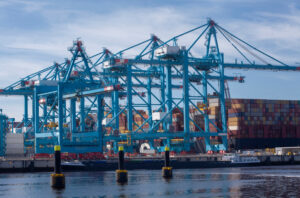The Port of Corpus Christi Authority (Port of Corpus Christi) and the Texas General Land Office (GLO) have signed a Memorandum of Understanding (MoU) to co-develop a carbon dioxide (CO2) storage solution along the Gulf of Mexico.
Located in the Coastal Bend, the solution would involve infrastructure to transport and permanently store CO2 captured by various industrial target sources in the greater Port of Corpus Christi area.
The GLO has already displayed strong leadership in this area, most recently issuing a Request for Proposals from entities interested in constructing carbon storage infrastructure on GLO lands in Jefferson County, Texas.
Academics from the University of Texas at Austin have mapped the geology of the Texas Gulf Coast and determined this region is ideal for injection and storage of pressurized CO2.
With today’s announcement, the GLO and the Port of Corpus Christi have identified the Texas Coastal Bend region as the next focal point for developing a scalable carbon management solution.
Jeff Pollack, Chief Strategy and Sustainability Officer for the Port of Corpus Christi, said, “The Port of Corpus Christi is uniquely suited geographically and commercially to become the nation’s premier hub for carbon management capture and storage.
“We have a high density of industrial CO2 target sources, a robust network of existing pipeline infrastructure, and we own a full transect of land from our customers’ fence lines out to GLO waters in the Gulf of Mexico.”
This is the latest progression for the Port of Corpus Christi’s sustainability developments: in August 2021, the port announced a new blue hydrogen facility and spoke to PTI in May 2021 on its new MoU to provide LNG bunkering facilities.
A recent report from the American Petroleum Institute and the International Petroleum Industry Environmental Conservation Association and the International Association of Oil and Gas Producers recommends immediate action to reduce carbon emissions by investing into the development of infrastructure to capture and permanently store carbon.
Texas Land Commissioner George P. Bush, added, “Our modern society relies on Texas’ rich natural resources for a variety of products that impact countless aspects of our daily lives.
“Utilising new, innovative carbon storage methods is a critical step in demonstrating that energy development and environmental stewardship are not mutually exclusive.









